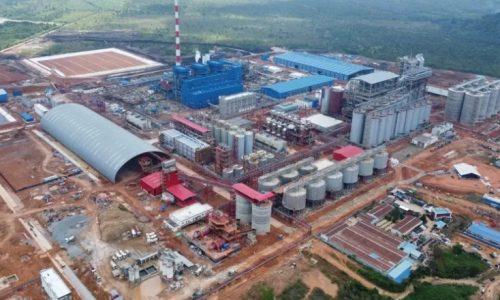The pursuit of the new capital city project in East Kalimantan, also known as the IKN project, has been met with caution by a public policy observer from Trisakti University Trubus Rahadiansyah.
Rahadiansyah believed that the Indonesian government should exercise patience and avoid rushing into the realization of this ambitious endeavor.
Rahadiansyah expressed his concerns regarding the government’s approach to attracting investors by offering generous incentives. He advised against making policies that offer excessive incentives or being too eager to bring in investors.
Rahadiansyah cautioned that such a strategy could have unforeseen consequences and become a ticking time bomb for the government.
“This policy can become a ticking time bomb. It can create new problems for the government,” Rahadiansyah said on Sunday (11/6).
Evaluating HGU and HGB incentives for IKN investors
The government’s current approach includes offering incentives such as tax holidays, land-cultivation permits (HGU) for up to 95 years, and right-to-build licenses (HGB) for up to 80 years. These incentives are outlined in Government Regulation No. 12 of 2023.
While these measures aim to attract investors and facilitate the development of the new capital city, Rahadiansyah believed that they may lead to potential problems in the future.
Rahadiansyah highlighted that Indonesia will be electing a new president next year, which will likely bring about changes in the political landscape and dynamics of the country. As a result, the rules and regulations established during President Jokowi’s tenure may undergo revisions.
For instance, the land-cultivation permits (HGU), initially granted for up to 95 years, may be subject to shortening under a new administration.
Furthermore, Rahadiansyah advises the government to exercise patience and adopt a step-by-step approach to its development. By avoiding haste and focusing on gradual progress, the government can navigate the project more effectively and mitigate potential risks.
“It’s okay to build [IKN]. But, it’s better for the government to be patient. Just develop it step by step,” he concluded.
Addressing investors need beyond tax holidays
In line with this, the Director of the Center of Economic and Law Studies (CELIOS) Bhima Yudhistira, has assessed that the tax holiday incentives offered by the government to attract potential investors in the IKN are not appropriate.
Bhima argued that there have been numerous government development projects that have offered tax holidays, yet they have not managed to attract investors, such as in the special economic zones (KEK).
Bhima stated that the issue desired by investors is not primarily related to tax discounts. They consider factors such as demand and the proximity of the location to the required raw materials.
For example, in industrial projects, the proximity of the location to the raw materials is a crucial consideration. Meanwhile, for the promised smart city of the new capital city, investors will assess basic infrastructure aspects such as internet access.
“The macroeconomic conditions and political situation leading up to the elections are actually the main considerations,” Bhima said on Monday, October 24, 2022.
Logistic costs and location as considerations for IKN investors
Furthermore, Bhima added that investors also take into account cost overruns, particularly concerning land acquisition issues. This is because 40 percent of the infrastructure cost is attributed to land acquisition.
The interest rate on loans is another aspect affecting investment decisions. Investors rely not only on their core capital but also on loans, including through bonds. If the interest rates increase, the burden on the project also grows.
Moreover, Bhima stated that logistics costs for material delivery are also a concern for investors because most of the raw materials for the IKN project are obtained from regions outside of Kalimantan.
“That is also a consideration, such as the sand and iron materials, which may be sourced from Sulawesi or Surabaya, which are the closest locations. Such costs need to be taken into account,” Bhima said.
DPR also criticizes government’s incentives for IKN investors
Apart from economists and public policy observers, the government’s incentives for investors in the IKN project have also faced criticism from the Indonesian House of Representatives (DPR).
A member of the DPR Commission XI Marwan Cik Asan criticized the government for seemingly giving away incentives for the development of the national capital city. He expressed his disappointment with the government’s approach, as it is perceived to potentially disregard the rights of the people.
“We are using all means to attract funds. As a result, matters related to regulations, justice, environmental protection, and the priority of people’s welfare can be sidelined. That is what we don’t want,” said Marwan on Monday (13/2).
Marwan emphasized that the government must adhere to principles of justice, sustainable development, the welfare of society, and the protection of local communities when providing incentives for investors.
Therefore, he urges the government to exercise caution and be more careful in injecting funds into the IKN development.









